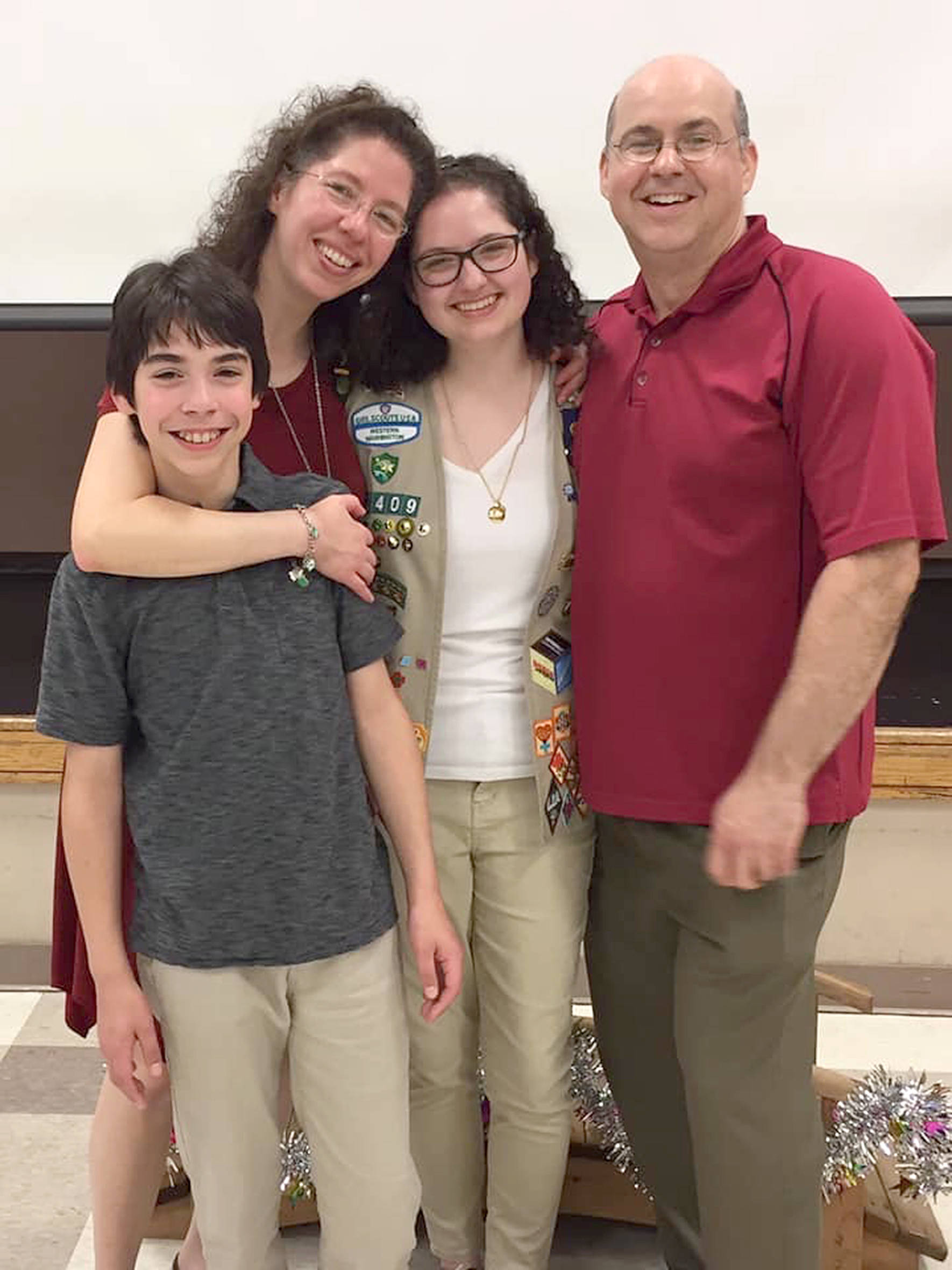It takes a lot of dedication, patience, persistence and smarts to earn a Gold Award from the Girl Scouts. Which is why it’s the highest award a scout can earn.
A Maple Valley graduate recently earned her Gold Award after dedicating 13 years to her troop.
Arina Poggioli is now in college, studying manufacturing engineering at California Polytechnic State University. Her legacy lives on, thanks to some unique elementary programs she created for future inventors.
“The Gold Award is like a super prestigious Girl Scout award,” Poggioli said. “What you need to do is make a sustainable project in your community. I wanted to create a robotics team.”
Poggioli had to network and find connections to help create the team, organize the team, manage the team and document her work to submit for the award. The results were a championship LEGO Robotics Team ran by high school students at Poggioli’s old school, Hazelwood Elementary in Auburn.
Poggioli started the work to create the teams during her sophomore year of high school. By her junior year, she bumped it up to two teams. She also created a work booklet so future high school students could run the program after Poggioli graduated.
“(The projects for) the Girl Scout Gold Award doesn’t just have to be for girls, it can be for anyone,” Poggioli said. “But I wanted to keep the project very inclusive. I still wanted to get girls in. We kept it about even, I think each team we had about five girls and five boys. We had a really great collaborative environment.”
One team consists of fourth-grade students, the other are fifth-graders. The program starts in August-September and will go until Dec. 31, unless the teams win the December robotics competition. Last year Poggioli had a team make it to the semifinals in January and then to the state championships.
“So what the teams have is a project board, and they build a robot to do different missions on the board in a certain amount of time,” Poggioli said. “So last year they had space, and they had to solve a problem regarding space and how to help humans during long-duration spaceflight. They did their project on bone loss and they tried to make gravity out of magnets. It was impressive they were just little fifth-graders competing against all the way up to eighth-graders.”
“I didn’t just see the student aspect … I actually got to see it from like a coaching standpoint, just being proud of the kids and seeing how they progress over the years.”
Poggioli started Girl Scouts when she was in kindergarten. A member of Troop 40409, in Maple Valley, her mom served as the troop leader and Poggioli made many friends.
“I really just loved the entire community, especially my Girl Scout troop, because a lot of us were together since we were first-graders and second-graders,” she said. “Those are probably some of my most memorable memories, and Girl Scouts really kept me going just to have that really tight-knit group. And then also, I love just the community service of it because we did so many things.
“When I was younger, we donated just a bunch of cookies to the fire station in Auburn,” she said. “And, as we got older, we start running events like encampments for little girls. I ran a ‘Girls in STEM’ workshop. … It was really fun because I got to work with my closest friends.”
Only 6 percent of Girl Scouts ever earn the Gold Award, according to a Girl Scouts of Western Washington news release.
“The Gold Award inspires girls to find the passion and greatness inside themselves and share their ideas and desires with their community, which can leave a positive, lasting ripple effect on our world!” the release said.
Poggioli was awarded in May gala at the Museum of Flight.


